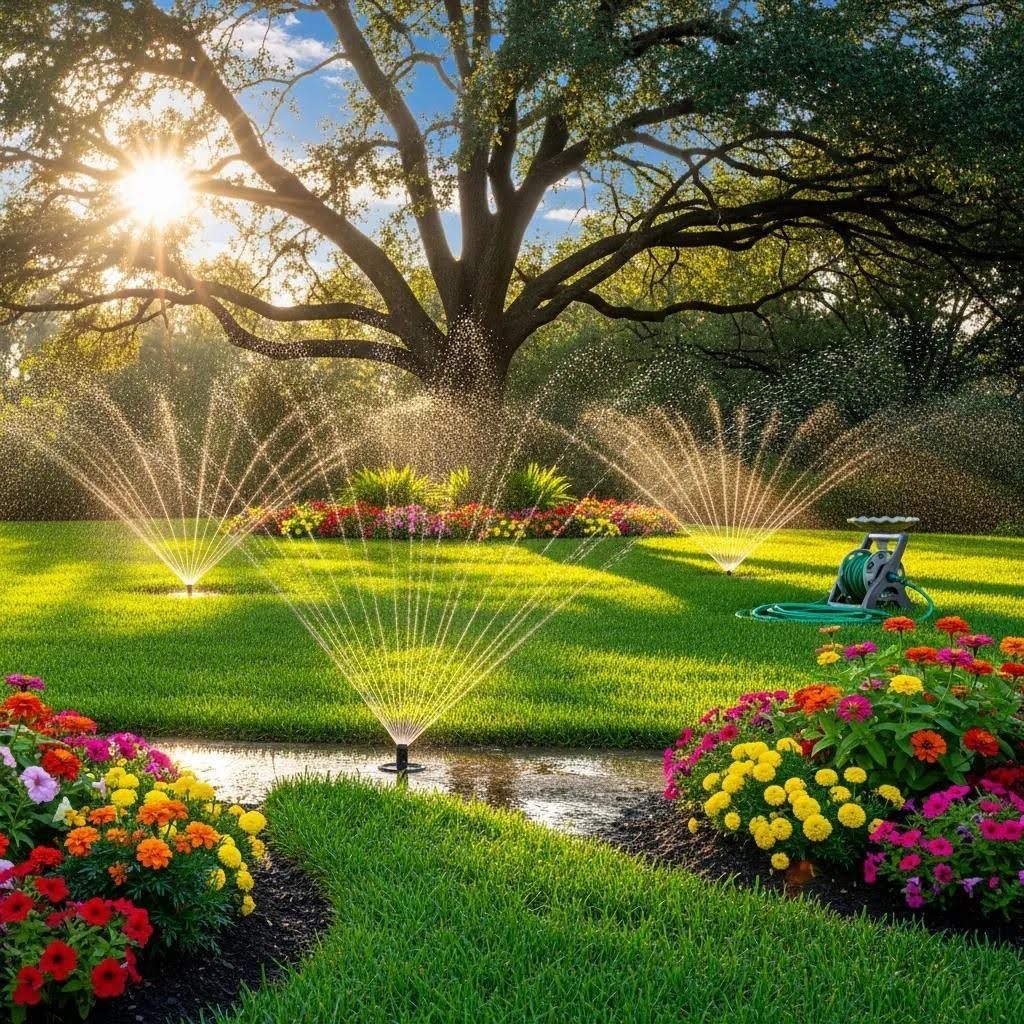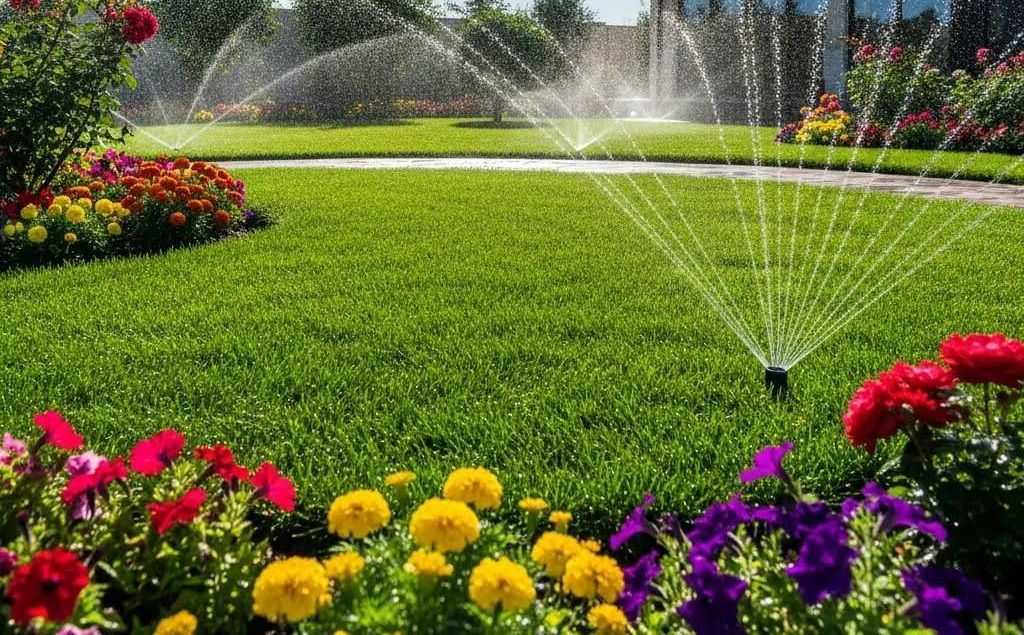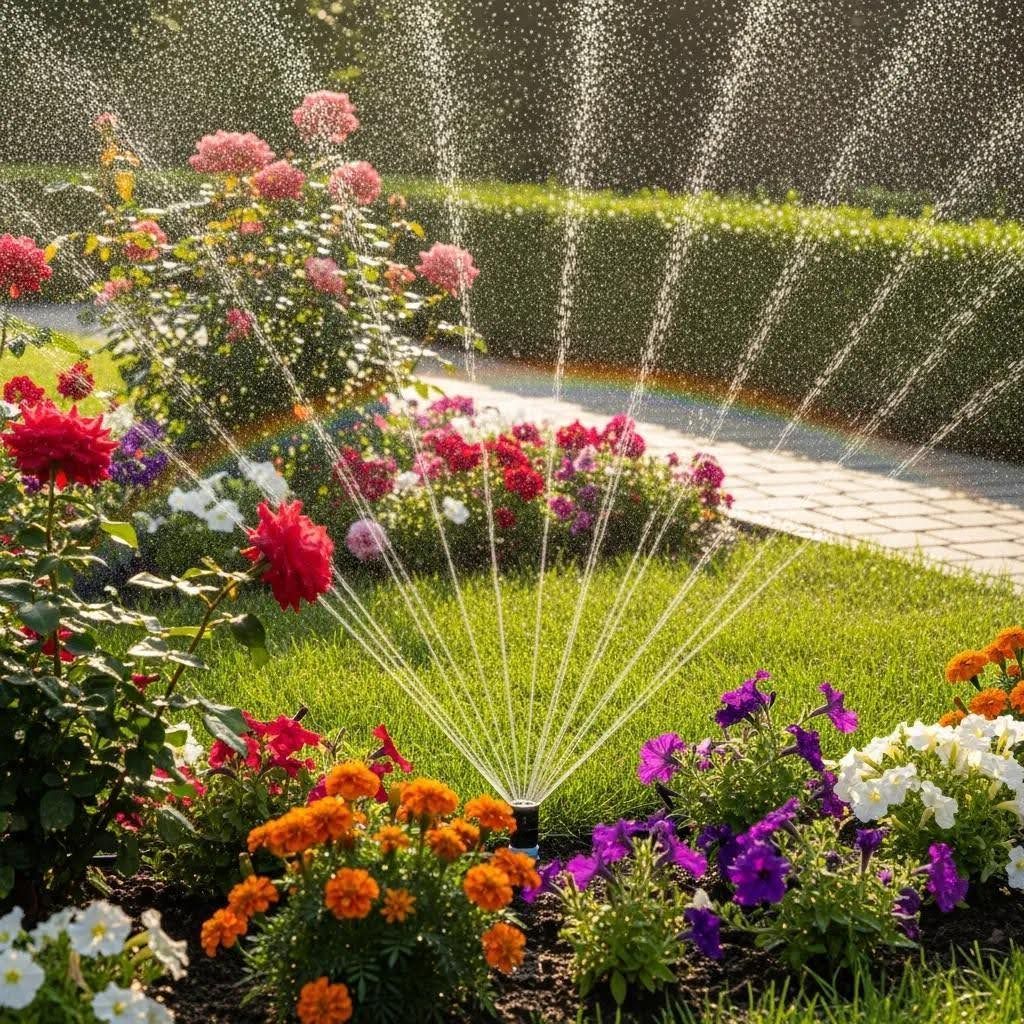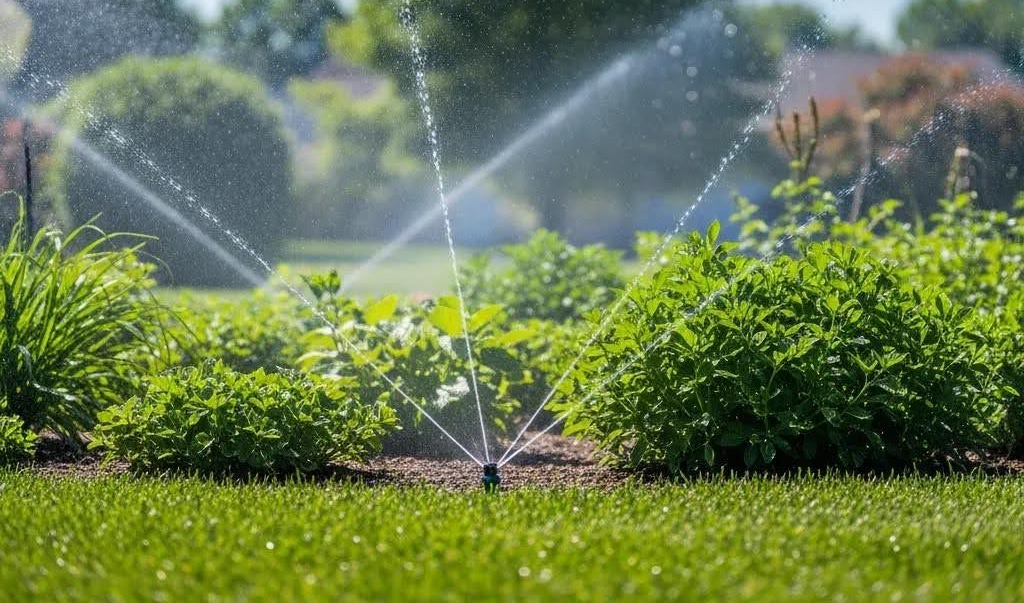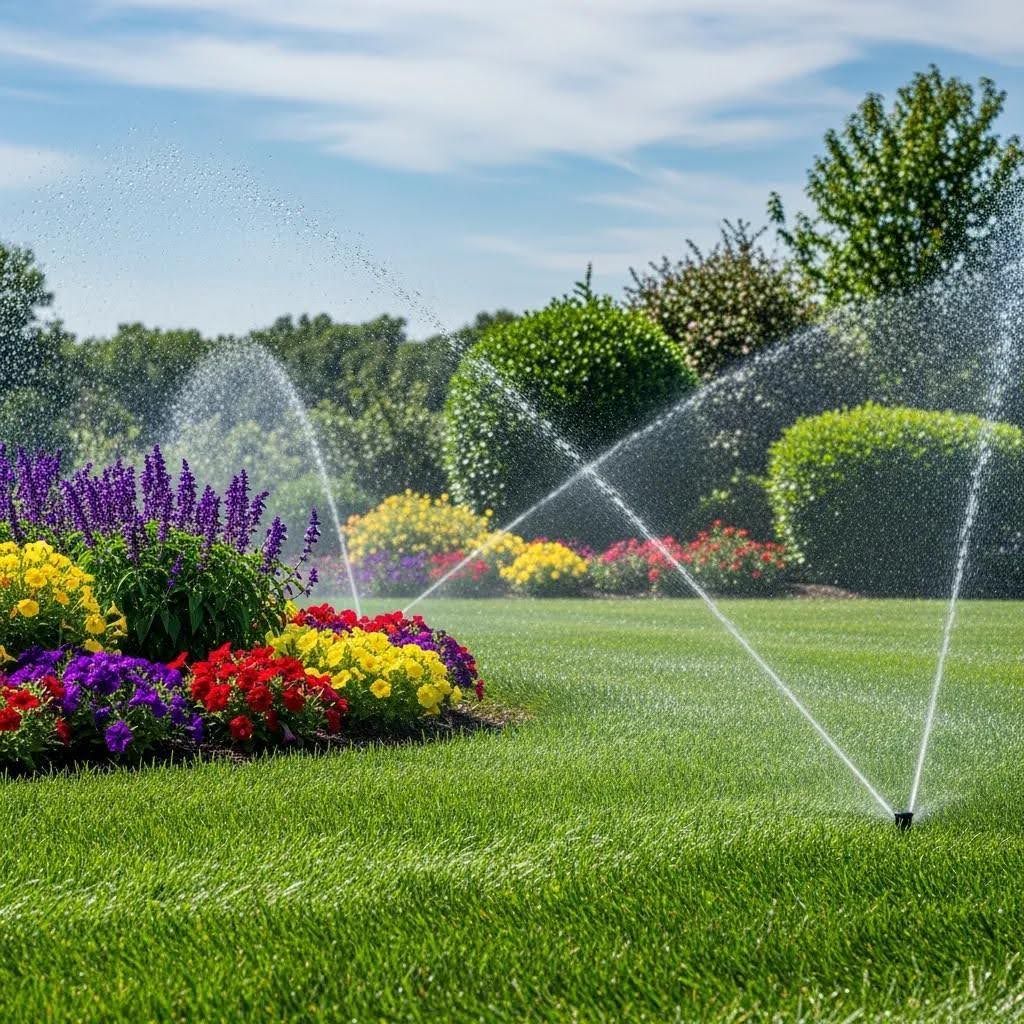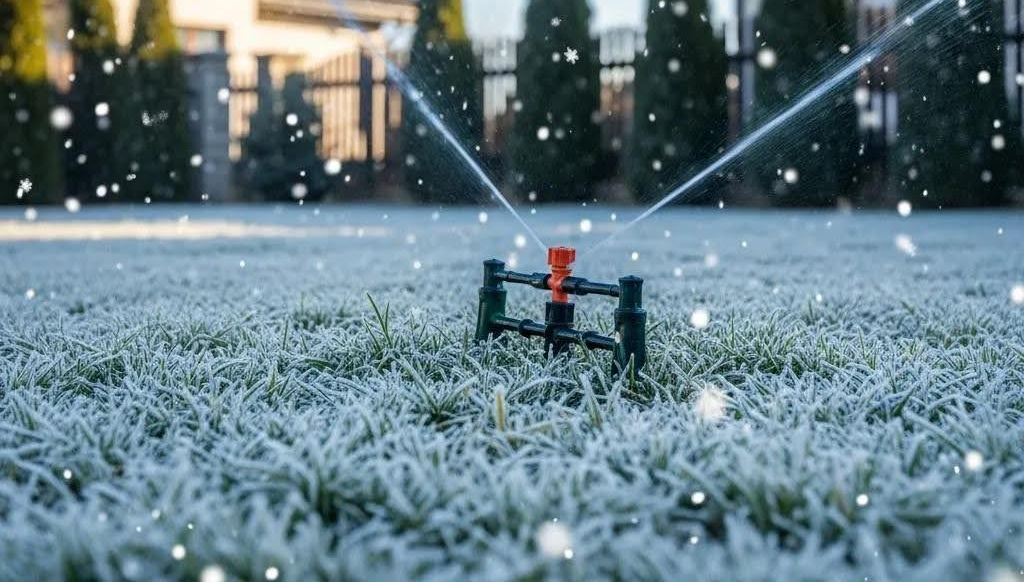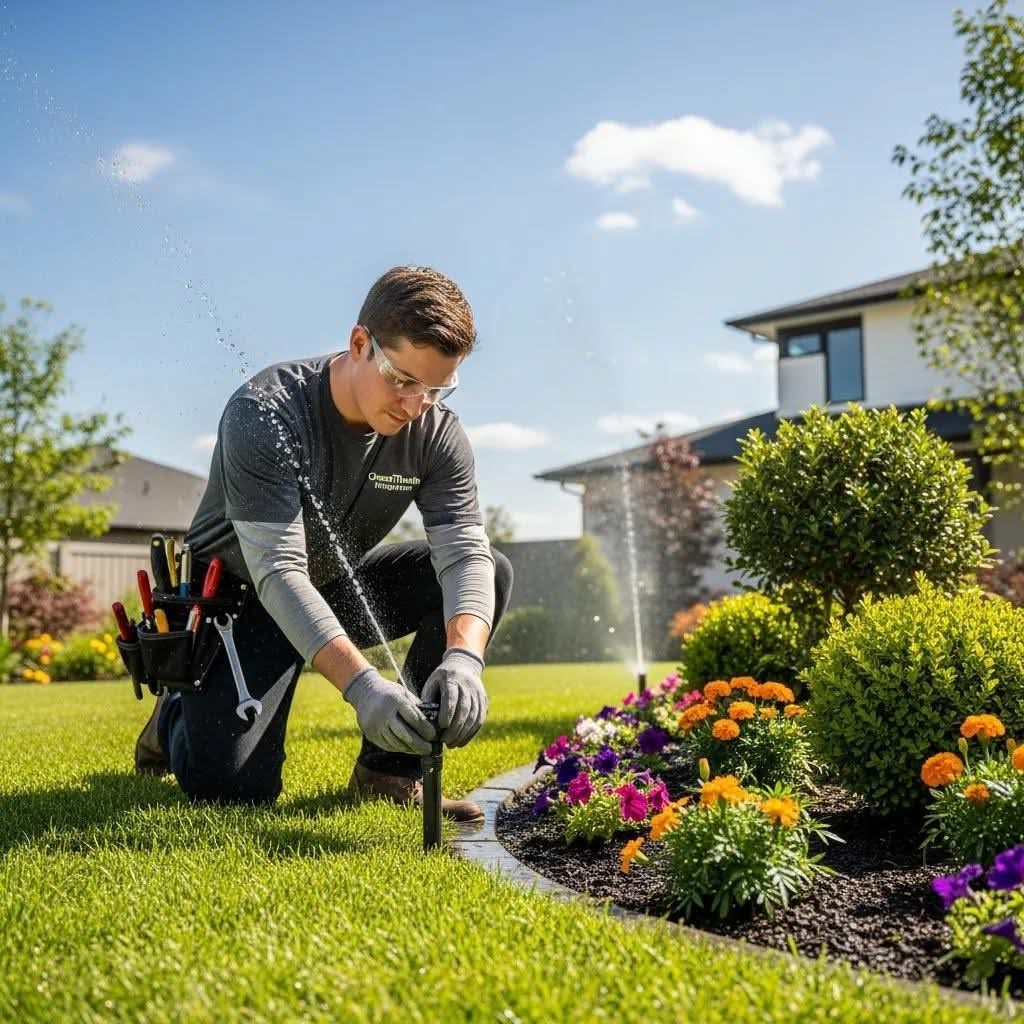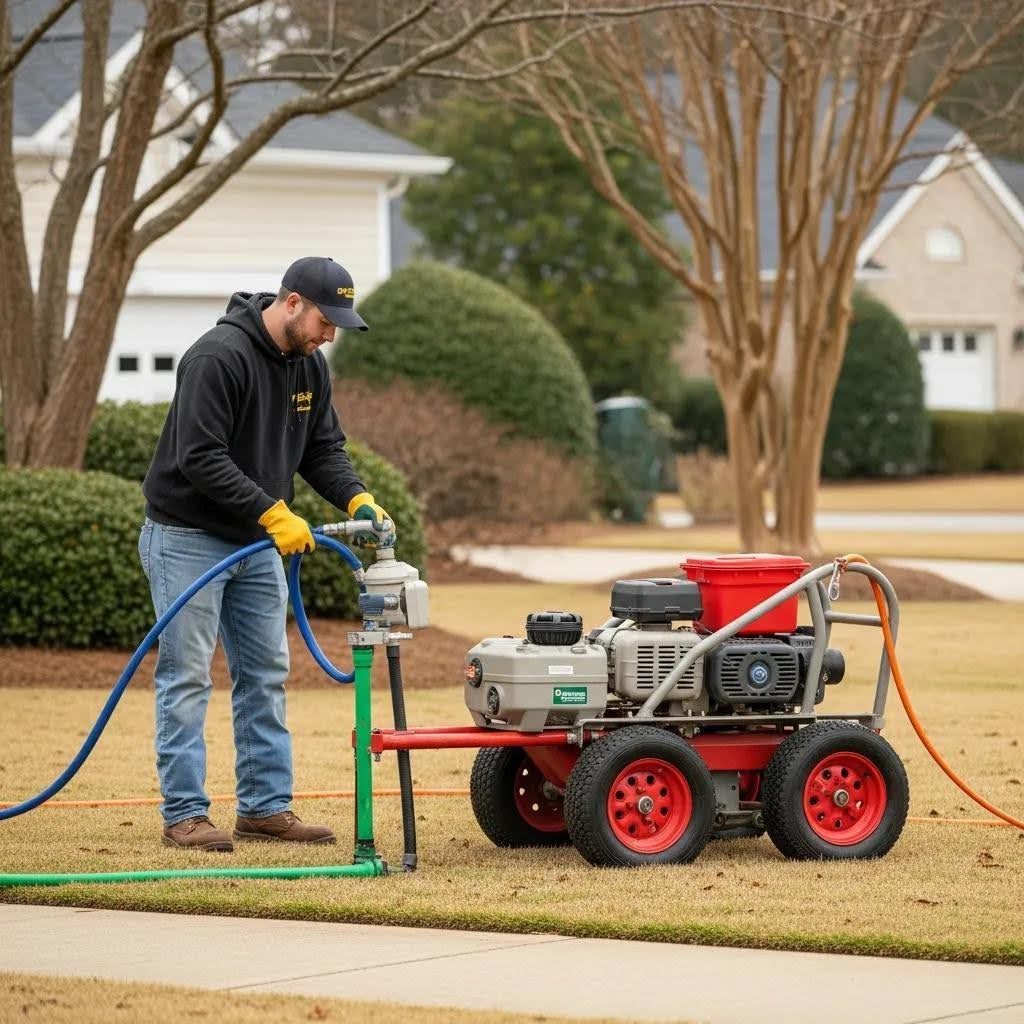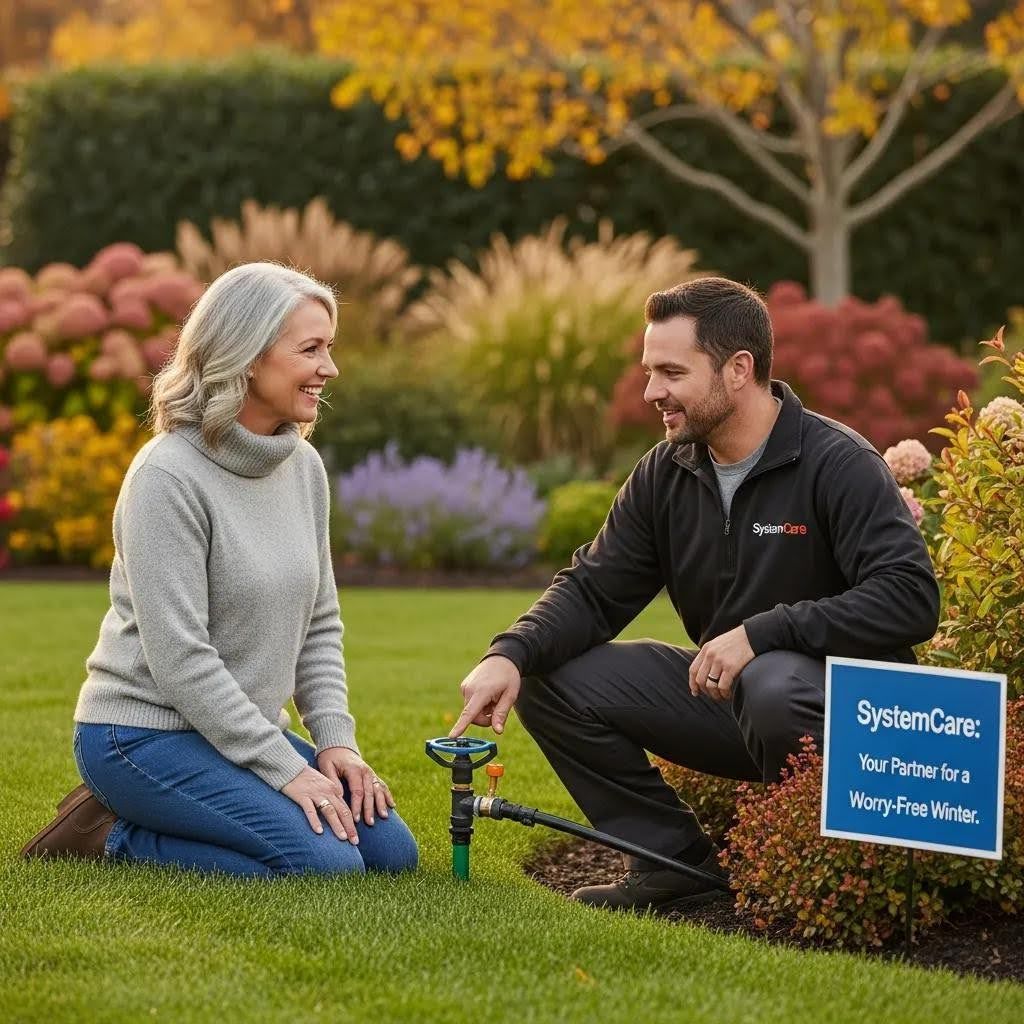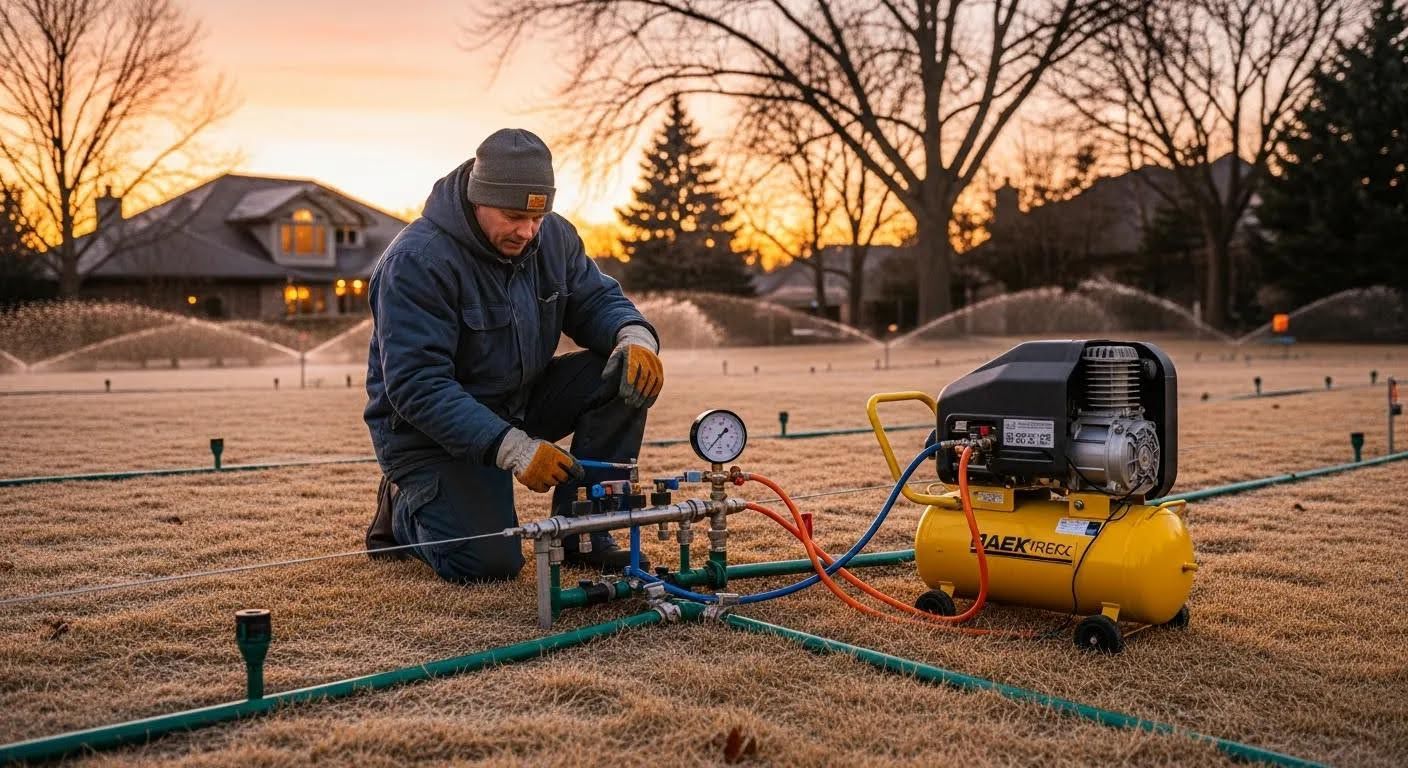Why Do Some Landscaping Contractors in Williamsburg Combine Sprinkler Repair and Landscape Design Services?
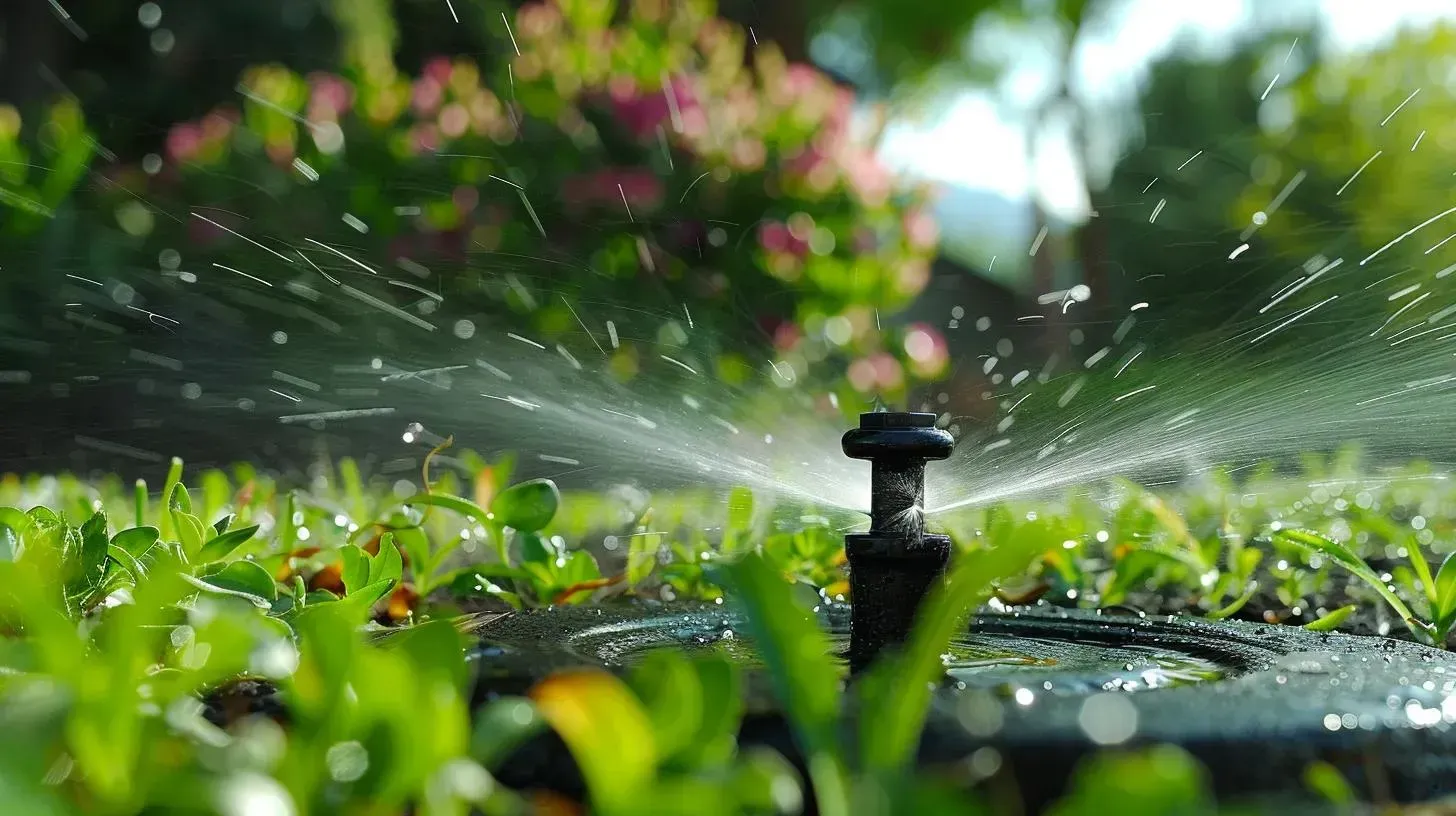
The lush, vibrant aesthetic of a beautifully designed yard is the pride of any homeowner, particularly here in the historic and scenic community of Williamsburg. However, achieving and maintaining that curb appeal is often a balancing act, requiring the management of multiple specialized services—a designer for the layout, a separate company for the plants, and yet another technician for the complex watering system. This fragmentation can lead to missed communication, conflicting approaches, and, most frequently, wasted water and money. It is precisely because of these challenges that leading regional firms, especially an expert Irrigation Company in Williamsburg, VA, have moved towards offering a fully integrated service model. This collaborative approach views the outdoor space not as separate parts, but as a single, interdependent ecosystem where the plants, the soil, and the water delivery system must work together flawlessly. Combining sprinkler repair and landscape design is not just a convenience; it is a fundamental shift toward superior results, long-term efficiency, and true environmental responsibility for homeowners across the area.
Why are separate landscaping and irrigation services inefficient for property owners?
Homeowners often begin their projects by hiring a landscape designer who creates a beautiful blueprint, specifying various plant materials, hardscape elements, and zones. Once the design is complete, they then hire a different contractor to install the lawn and gardens, and finally, a third, independent team to handle the irrigation system. This common practice, though seemingly straightforward, introduces numerous opportunities for inefficiency, errors, and significant additional costs down the line. The designer is often focused purely on aesthetics, while the irrigation specialist is focused purely on water delivery, resulting in a system that poorly matches the actual planting needs.
The lack of coordination between these independent teams means that the design may include plant species with drastically different watering requirements placed in the same irrigation zone. This forces the system installer to either compromise the plant health of one group or overwater another, inevitably leading to excessive water consumption and higher utility bills. When problems arise, such as a broken sprinkler head or a valve malfunction, the homeowner is left trying to determine whether the fault lies with the initial design or the installation method. This troubleshooting process wastes valuable time and resources.
Choosing a specialized contractor that offers a repair and design package from the start ensures that a unified vision guides the entire process, from the first sketch to the final system check. This integrated method removes the guesswork and creates a single point of responsibility for the health and appearance of your entire outdoor space. The designer and the technician are one team, ensuring every plant, every zone, and every water-use goal is perfectly aligned.
Designing for Water Needs First
Water is the lifeblood of any thriving landscape, and its efficient delivery should be the foundational element of any outdoor design. A landscape that looks stunning on paper but lacks a practical and efficient watering plan will inevitably struggle to survive the intense seasonal shifts in the local climate. By combining the services, the planning phase begins not only with aesthetics but with hydrozoning—the practice of grouping plants with similar moisture needs into specific irrigation zones.
This practice is essential because turf grass, drought-tolerant shrubs, and delicate annuals all require vastly different amounts of water. If they are watered identically by a single system, one area will be under-stressed and dry, while another will be overwatered, leading to root rot and fungal diseases. An integrated contractor uses their knowledge of system components and plant biology simultaneously to map out the landscape.
They consider the soil type, the sun exposure, and the slope of the property before any plants are selected, ensuring that the irrigation infrastructure is customized to the specific microclimates within your yard. This preventative planning saves homeowners from expensive retrofits and ongoing repair bills that stem from a fundamentally mismatched system. This level of upfront detail is why the combination of services offers such a powerful value proposition.
Avoiding Costly Redesigns and System Retrofits
One of the most common and frustrating scenarios for homeowners is discovering that their brand-new irrigation system is incompatible with their new planting beds. A designer might plan a dense garden area that requires precision watering, but the separately hired irrigation crew only installs standard spray heads designed for lawn coverage. The result is overspray, wasted water, and poor plant establishment.
When the two services are managed by the same team, the technician who understands pipe sizing, water pressure, and head-to-head coverage works directly with the designer who is selecting the plants and defining the zones. This collaboration happens before any trenches are dug, guaranteeing that the design can be executed with maximum water efficiency and minimal disruption. This is a critical factor in managing the overall project budget and timeline.
A unified approach ensures that every aspect of the project is considered holistically, including the initial placement of main lines, the valve locations, and the selection of appropriate emitters. When a design plan is handed off between contractors, crucial details are often lost, but in a single-team structure, the integrity of the design is maintained throughout installation. This minimizes the risk of having to pay a second contractor to correct the mistakes made by the first, a situation that often negates any perceived initial savings.
What are the key benefits of an integrated repair and design package?
The decision by companies to offer a repair and design package stems from the clear practical and economic benefits it offers to the client. This full-service model moves beyond mere convenience; it is about guaranteeing the long-term success and sustainability of the outdoor environment. An integrated approach ensures that the highest standard of both aesthetic design and water management is met, transforming a property into a beautiful, resilient space.
This comprehensive service ensures that all components, from the subterranean pipes to the exposed spray heads, are accounted for in the overall plan. When the same company designs, installs, maintains, and repairs the system, they possess a detailed knowledge of every element, leading to faster, more accurate service. The deep understanding that comes from this full-service model allows for a truly proactive approach to property management.
Streamlined Communication and Accountability
The traditional method of juggling multiple contractors—one for design, one for installation, and perhaps another for repair—creates a fragmented chain of communication. When an issue arises, each contractor points to the other, making it nearly impossible for the homeowner to get a swift resolution. A full-service firm simplifies this entire interaction.
With a unified provider, there is a single point of contact us for all needs, whether the issue is a broken pipe, a faulty controller, or a landscape design question. This clarity drastically reduces the homeowner's stress and saves the time spent coordinating schedules and mediating disputes between separate companies. One team is accountable for the entire system's performance, from its creation to its functionality years down the line.
This singularity of responsibility fosters a higher quality of work. Knowing they will be the ones maintaining and potentially repairing the system in the future, the installation team is incentivized to use the best materials and techniques from the start. This professional foresight results in a more durable and reliable irrigation system that requires less frequent intervention, thereby protecting the client's long-term investment.
Consistent Long-Term System Health
An integrated firm understands that the health of the irrigation system is inextricably linked to the vitality of the landscape. They don't just install a system and walk away; they manage its life cycle. The team that designed your garden knows exactly where the vulnerable parts of the irrigation system are located relative to the root systems of mature plantings and hardscape elements.
This knowledge is vital during routine maintenance and repair calls. When a technician arrives to fix a leak, they are also looking at the surrounding plants to see if the water issue has caused stress or damage. Furthermore, they can offer expert advice on optimizing the system settings seasonally. For instance, receiving a Williamsburg Guide to Mid-Season Irrigation Maintenance from your service provider ensures you have professional insights on how to adjust watering cycles as the intense heat of the local summer progresses.
The consistency of having the same team handle every aspect of the outdoor environment leads to greater operational efficiency. They are familiar with the specific model of controller, the location of all zones and valves, and the historical repair records for the property. This specialized knowledge allows for faster, more targeted repairs, reducing the time the system is down and preventing widespread plant damage.
How does integration enhance water conservation efforts locally?
Water conservation is a growing priority for every community, and Williamsburg is no exception. Efficient use of water not only helps preserve local resources but directly translates into significant savings on utility bills for the homeowner. When contractors integrate design and repair, they prioritize water-saving technology and practices that are critical for managing the region's humid, subtropical climate.
Inefficient watering is the single biggest cause of residential water waste. A system designed by an independent firm, which may not be fully aware of the latest water-saving technologies, often contributes to excessive runoff and evaporation. An integrated service provider, however, treats every installation and repair as an opportunity to maximize water efficiency, aligning the client's financial interests with environmental responsibility.
By bundling design with repair, the contractor is consistently motivated to recommend high-efficiency upgrades. They know that future service calls will be minimized if the initial installation utilizes smart technology and precision components. This commitment to efficiency benefits both the homeowner, who sees lower bills, and the community, which benefits from sustainable water use.
The Mandate for Smart Technology Integration
Modern irrigation systems are defined by their intelligent use of technology. Integrating design and installation services means that smart components are not an afterthought, but a core part of the initial blueprint. These systems utilize data from various sources to determine the exact watering needs of the landscape on any given day.
Features like weather-based controllers, rain sensors, and soil moisture probes ensure that the system never waters during or immediately after a rain event, or when the soil already contains sufficient moisture. This level of precision prevents the massive water waste associated with outdated systems operating on simple timers. The result is not just a healthier lawn, but a smaller environmental footprint.
We offer full service irrigation landscaping Williamsburg that focuses heavily on incorporating these cutting-edge tools. If you are looking to elevate your property's care with automated efficiency, you can explore the advantages of Efficient Lawn Care with Smart Irrigation in Williamsburg. Smart systems manage the complexity of watering different zones, adjusting automatically for changes in sun exposure, wind, and plant growth, effectively putting an expert agronomist in control of your sprinkler system 24/7.
Ensuring Safety and Compliance with Backflow Systems
A critical component of any responsible irrigation system in the area is proper backflow prevention. This device ensures that contaminated water from the irrigation system—which may contain fertilizers, pesticides, or other yard debris—cannot flow backward into the public drinking water supply. Local regulations in the region require regular testing and certification of these crucial safety components.
When a company manages both the design and the subsequent maintenance, they ensure that the required backflow prevention device is correctly specified, installed in the appropriate location, and easily accessible for yearly testing. A dedicated contractor will handle the required documentation and scheduling for these tests, taking the administrative burden off the homeowner. This commitment to public health is a non-negotiable part of our service.
Proper installation and maintenance of these assemblies is key to preventing municipal water contamination. Understanding the importance of this protection is vital, and homeowners benefit greatly from professionals who are certified and licensed in this specialized area. You can learn more about the strict requirements and your responsibilities regarding Backflow Prevention for Irrigation Systems to ensure compliance and safety on your property.
What factors in the local climate necessitate integrated services?
Williamsburg, Virginia, sits within a humid subtropical climate, characterized by hot, humid summers and mild, wet winters. This unique set of weather patterns presents specific challenges for maintaining a beautiful landscape and a functional irrigation system. An integrated contractor brings deep local knowledge to the table, ensuring the outdoor space is designed to thrive under these exact conditions.
The combination of high summer humidity and periodic dry spells means that a "set-it-and-forget-it" watering schedule is a recipe for disaster. Plants need more water during the intense summer heat but can suffer from root disease if soil remains waterlogged during rainy periods. This variability demands an agile, responsive irrigation system that can be adjusted seasonally and maintained by professionals who understand the regional weather fluctuations intimately.
Furthermore, the local soil composition, often characterized by clay and sand mixtures, dictates how quickly water is absorbed and retained. A generic irrigation design will not account for this, leading to wasted water through runoff on compacted clay soils or overly frequent watering on fast-draining sandy patches. Integrated service providers customize the application rate to match the soil's absorption capacity, leading to deeper root growth and more resilient plants.
Financial Wisdom: Understanding Total Ownership Costs
When considering a new landscape or irrigation system, homeowners often focus solely on the initial installation cost. However, the true financial impact lies in the total cost of ownership over the system's lifespan, which includes water bills, maintenance, and future repairs. An integrated service provider is in the best position to project these costs accurately and design a system that minimizes long-term expense.
By focusing on water-efficient design elements and using durable, high-quality components, a full-service contractor can dramatically reduce future repair needs and ongoing water consumption. This approach allows the homeowner to view the initial investment as a protective measure against future high operating costs. It’s an investment in efficiency, not just aesthetics.
To help clients budget effectively and understand the value proposition of a high-efficiency system, a transparent, integrated provider offers clear breakdowns of both installation and long-term costs. Understanding this total financial picture is crucial for making informed decisions about your property investment. For a comprehensive breakdown of budgeting considerations, consult your Williamsburg Homeowners’ Guide to Irrigation Costs before embarking on any major project.
Year-Round Health with Seasonal Adjustments
The maintenance of an irrigation system in this area is a year-round commitment that requires two critical seasonal operations: the Spring Start-Up (or Summerization) and the Fall Shutdown (or Winterization). The Spring Start-Up carefully reactivates the system, checks for any damage caused by winter freezing, and recalibrates the controller for warmer weather watering needs. The Fall Shutdown involves draining or blowing out the lines to protect the pipes from freezing temperatures.
A single contractor managing the entire process ensures that these critical seasonal tasks are executed flawlessly according to the system's unique design specifications. They are intimately familiar with the location of the main shut-off valve, the backflow preventer, and the specific controller programming, making the process faster and more reliable. This continuity of care protects the system from the two biggest seasonal threats: freeze damage and inefficient summer operation.
This regular, professional service is essential for preventing catastrophic system failure, which can be expensive and disruptive. By entrusting both the initial build and the subsequent maintenance to one expert team, homeowners ensure their investment remains protected against the elements. You can gain deeper insights into the necessary annual routines by reading our detailed Williamsburg Guide to Seasonal Irrigation System Care.
Selecting the Right Partner for Integrated Services
Choosing a contractor that offers a combined repair and design package requires looking for more than just a list of services. You need a partner who demonstrates proven local expertise, a commitment to water efficiency, and a deep understanding of landscape architecture principles. The best integrated providers view themselves as stewards of your property's entire outdoor ecosystem.
A premier firm will provide comprehensive consultation that goes beyond simple watering schedules. They will discuss soil conditioning, plant choices, and the long-term maintenance required to achieve the desired aesthetic. They should possess certifications in both irrigation technology and landscape design, ensuring their team is cross-trained and capable of handling every facet of the project with authority. This integrated skill set is the hallmark of a true full service irrigation landscaping Williamsburg provider.
When you choose a company like Hampton Roads Irrigation & Landscape, you are selecting a team that operates with a unified strategy. We understand that a new design is only successful if the underlying infrastructure is robust, and that a repair is only effective if it contributes to the overall water conservation goals of the property. Our approach is to offer seamless, expert care from the initial concept to routine maintenance checks years down the line.
Why Experience Matters in the Local Market
The reputation of a service provider speaks volumes about their reliability and the quality of their long-term work. A company that has served the Williamsburg area for years has accumulated invaluable institutional knowledge about the specific local challenges, including common soil issues, municipal water pressure quirks, and the most reliable equipment for the coastal climate.
This regional experience allows them to make informed decisions that avoid common pitfalls experienced by less specialized or out-of-town contractors. For example, they know exactly which types of valves are most susceptible to failure in local soils and which smart controllers perform best with the regional weather station data. This granular level of knowledge ensures that your investment is built to last.
Before making a decision, research is key. Testimonials and third-party ratings offer an unfiltered look into the quality of service, responsiveness, and long-term satisfaction of previous clients. We are proud of the work we do for our neighbors throughout the region, and we invite you to check our reviews to see the direct feedback from homeowners who have experienced the benefits of our integrated approach. We believe that transparent and verifiable client satisfaction is the most reliable indicator of professional capability.
Hampton Roads Irrigation & Landscape: Your Partner in Integrated Outdoor Excellence
At Hampton Roads Irrigation & Landscape, we firmly believe that the most beautiful and sustainable landscapes are those where design and function are inseparable. Our team of experts brings together the aesthetic vision of landscape architecture with the technical precision of professional sprinkler repair and installation. This full-service approach ensures that every project we undertake is not only visually stunning but also environmentally responsible and cost-effective for the homeowner. We handle everything from the initial consultation and detailed blueprint creation to the final installation and all subsequent seasonal tune-ups and repairs.
Our commitment is to provide a comprehensive landscape irrigation integration service that removes the stress of managing multiple contractors. Whether you are installing a complex new garden or simply need expert service to repair an existing system, we offer the seamless, unified expertise required to protect your property investment. Our integrated packages are specifically designed to address the challenges faced by properties throughout the region, focusing on water conservation, system durability, and plant health. This holistic view is what sets us apart as the premier Irrigation Company in Williamsburg, VA.
Frequently Asked Questions (FAQs)
What is hydrozoning and why is it important for my landscape?
Hydrozoning is the practice of grouping plants with similar water requirements into the same irrigation zones. It is critical because different plants, such as drought-tolerant native species and turf grass, cannot thrive with the same amount of water. By dividing the yard into zones based on moisture needs, an integrated system ensures that each plant receives the precise amount of water it requires, preventing overwatering in some areas and underwatering in others. This maximizes plant health and significantly reduces water waste.
How often should my irrigation system be professionally inspected for efficiency?
While seasonal maintenance (spring start-up and fall winterization) is non-negotiable, a professional efficiency inspection should ideally occur at least once every year, usually in the mid-season. During this inspection, a technician will check for leaks, adjust sprinkler head alignment, test pressure in all zones, and ensure the controller settings are still appropriate for the current weather patterns and plant maturity. This proactive inspection saves water and prevents minor issues from escalating into expensive repairs.
Can an existing, non-integrated landscape be converted to an integrated system?
Yes, absolutely. A professional integrated contractor will begin with a thorough property audit of your existing landscape and irrigation system. They will identify areas where plants are struggling due to poor water coverage and assess the efficiency of your current components. Based on this information, they can recommend upgrades, such as converting standard spray zones to drip irrigation in planting beds or installing a smart controller, effectively integrating the functional components into the existing design.
What is the most important component of an irrigation system for water conservation?
While high-efficiency nozzles and drip lines are crucial components, the most important element for water conservation is the smart controller. Modern smart controllers use Wi-Fi to connect to local weather data and utilize soil moisture sensors to automatically adjust watering schedules in real-time. This prevents the system from running unnecessarily after rainfall or during periods of high humidity, providing immediate and substantial water savings compared to systems that simply run on a fixed timer.
Does combining design and repair services increase the total upfront cost of my project?
While a comprehensive repair and design package may sometimes have a higher initial cost than simply hiring a low-bid installer, it almost always reduces the total cost of ownership over the first few years. The upfront investment ensures the system is correctly designed for efficiency and long-term durability. This prevents costly emergency repairs, minimizes water bills, and protects the valuable investment you have made in your trees, shrubs, and turf. The integrated approach is the most financially prudent choice for maximizing long-term value.
Final Words
In the complex world of outdoor property management, the choice between fragmented service providers and a singular, integrated expert can define the success and longevity of your landscape. By choosing a company that seamlessly combines the expertise of design and the technical skill of sprinkler repair, homeowners in the area secure an advantage that saves them time, conserves valuable water, and ultimately protects their substantial investment. This holistic model is the industry’s future, ensuring every drop of water is used intelligently to maintain the beautiful, historical environment of our community. When you are ready to explore the advantages of a truly unified approach to landscape and water management, partnering with a full-service provider ensures excellence from the ground up. Choose the most capable Irrigation Company in Williamsburg, VA to achieve the lush, sustainable landscape you deserve.
